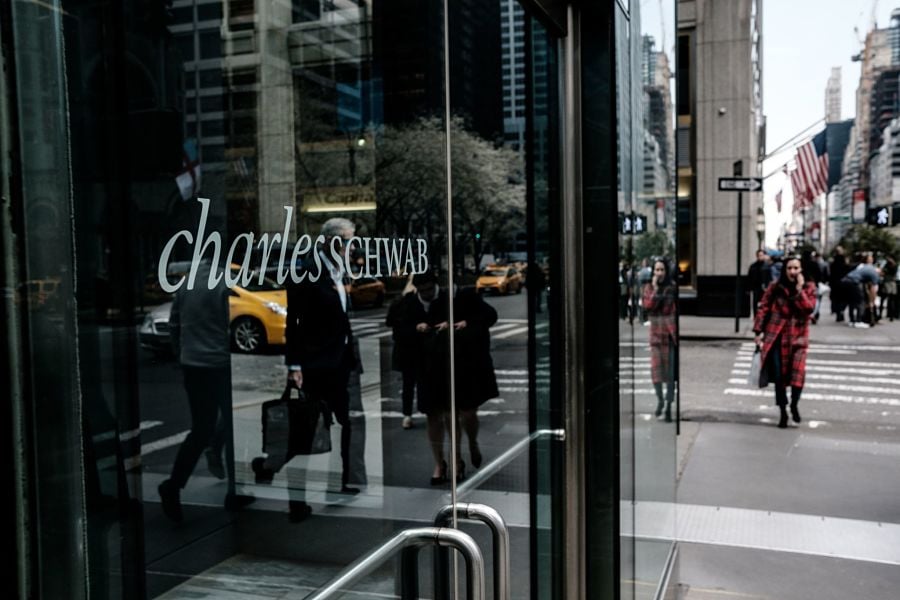

Charles Schwab Corp. reported record earnings per share in the third quarter as clients opened new brokerage accounts and traded more amid volatile markets.
Adjusted earnings of 84 cents a share topped the 80-cent average estimate of analysts in a Bloomberg survey. Customers opened 1.2 million retail brokerage accounts, almost double the number added in the same period a year earlier, the company said Friday in a statement.
Average daily trades almost quadrupled to 5.5 million from a year earlier but fell from the previous quarter’s 6 million level.
Schwab is the largest U.S. brokerage, with $7.6 trillion in client assets, after buying TD Ameritrade last year. The Covid-19 pandemic brought a boom in retail trading that lifted major brokerages as well as upstart rivals such as Robinhood Markets Inc., which had roughly 22.5 million funded accounts at the end of June. About 32.7 million people have brokerage accounts with Schwab.
Schwab’s trading revenue of $964 million was more than five times its level a year earlier. That helped boost overall net revenue 87%, to $4.6 billion.
Shares of the brokerage, which have climbed 53% this year, rose 3.6% to a record $80.90 at 10:15 a.m. in New York.

From outstanding individuals to innovative organizations, find out who made the final shortlist for top honors at the IN awards, now in its second year.

Cresset's Susie Cranston is expecting an economic recession, but says her $65 billion RIA sees "great opportunity" to keep investing in a down market.

“There’s a big pull to alternative investments right now because of volatility of the stock market,” Kevin Gannon, CEO of Robert A. Stanger & Co., said.

Sellers shift focus: It's not about succession anymore.

Platform being adopted by independent-minded advisors who see insurance as a core pillar of their business.
RIAs face rising regulatory pressure in 2025. Forward-looking firms are responding with embedded technology, not more paperwork.
As inheritances are set to reshape client portfolios and next-gen heirs demand digital-first experiences, firms are retooling their wealth tech stacks and succession models in real time.
